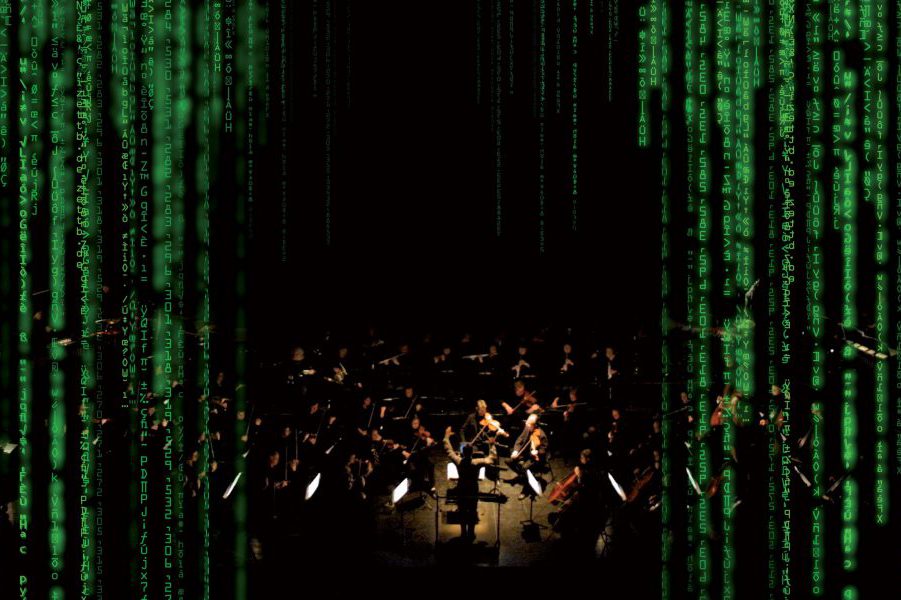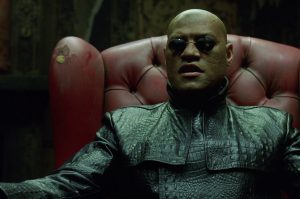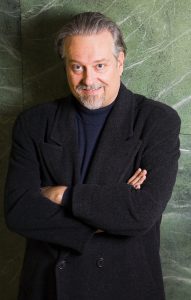‘The Matrix’ composer Don Davis on his influences, hiring and live shows with SF Symphony

“The Matrix Live” will be performed by San Francisco Symphony and composer Don Davis.
When “The Matrix” came out in 1999, there had been nothing quite like it in American cinema.
The Matrix Live
7:30 p.m., Friday, July 1 and Saturday, July 2
Davies Symphony Hall
Tickets: $75-180.
The movie had clear influences for sure—wire fu Hong Kong action movies, anime classics “Akira” and “Ghost in the Shell,” the novels of cyberpunk pioneer William Gibson—but nobody in Hollywood had ever successfully combined them. On top of that, by wrapping them around what was essentially a classic fairy tale structure, the film’s creators, the Wachowskis, made the result accessible to a wide audience.
When the film’s composer, Don Davis, read the script and watched the first rough cuts of the movie, he knew the score would have to go outside the box as well if it was going to match the film’s feel.
“Back then, there were composers working in a style that I call ‘post-modern,'” Davis said in a call earlier this week. “Those composers were John Adams, Philip Glass, David Lang, Aaron Kernis and Michael Torke. There’s a certain stylistic element of what they were doing, and I was very interested in that sort of thing,” Davis said. “When I read ‘The Matrix,’ and especially when I saw it, I saw that this is something where I could apply that kind of concept in a way I hadn’t seen in any film before that. It was something I had wanted to do for a long time, and this was a film with a unique look and a unique approach where I could.”
Davis was absolutely right about the approach. So much, in fact, that more than 20 years later, he does live performances of the score over “The Matrix” film. He brings the show to Davies Symphony Hall, with the San Francisco Symphony, on July 1 and 2, the first one since 2019.
“In the final scene and the beginning of the credits in the movie, it’s a Rage Against the Machine song. But when I was scoring it, they didn’t have the rights yet so they asked me to cover it with an orchestral scene, which I did,” Davis said. “Obviously, they did secure the rights so they used that. But for the live show, I didn’t ask the Wachowskis about this, but we decided to go back to what I had written. When you see the show, you get to hear that, so that’s one reason to buy your ticket.”
Davis did not find himself composing the score to “The Matrix” through traditional means. He primarily scored TV shows—he won an Emmy for his work on “SeaQuest DSV”—and at the time it was difficult to make the jump from television to film. He eventually got his shot on what he describes as a “small, low-budget, pretty awful film that I probably shouldn’t tell you the name of.”
Despite that first movie’s quality, the job led to a friendship with the movie’s editor, which resulted in a recommendation for a crime thriller called “Bound,” about a lesbian couple stealing money from the mafia, the first directorial effort by a pair of siblings who had previously only been screenwriters.
“It was really a remarkably good script,” he said. “It was innovative in a number of ways. What really struck me about it was that it centered on an LGBTQ couple, but rather than being rather exploitative about it like most films in those days, it was very realistic. I could see that these people had something going for them.”
“Bound” was well-received, so the studio greenlit the Wachowskis’ second effort. It was a passion project for them, and it was a bit hard to visualize, so they were wary of studio interference. This worked in Davis’ favor.
“They were the kind of people who stuck to their philosophies, to their premises. And one of those premises was that, as they were developing ‘The Matrix’ with Warner Brothers, everything that Warner Brothers brought to it was something they would lose control of,” Davis said. “The budget was large enough that the Wachowskis knew any control they gave up was significant. So they were adamant, when they went in, that they use their people. They came in and said that they wanted the director of photography that did ‘Bound,’ they wanted the editor that did ‘Bound’ and they wanted the composer that did ‘Bound,’ among other principals. They brought along their posse, as they called it. So that was obviously a very lucky benefit for me.”
As good as “Bound” was, that second effort was far more successful.
Davis went on to score sequels “The Matrix Reloaded” and “The Matrix Revolutions,” some segments of the animated companion piece “The Animatrix” and video games “Enter the Matrix” and “The Matrix Online.” And while he’s worked on many other movies as both the composer and an orchestrator for the likes of Randy Newman and James Horner, it’s the “Matrix” series that has drawn the most attention and analysis.
As it turns out, though, that analysis isn’t always accurate. While articles, chapters of books and academic papers have been written about the themes and hidden nuance behind his work, it was rarely a purposeful choice. Not because of lack of intent but because of the mechanics of scoring a film.
“I had a guy say, for instance, for Neo it was diatonic, but when they were the machines it would be chromatic. He’d go on and on about how I did this and that,” Davis said, laughing. “The thing about film music is that any formal element you bring to it is in jeopardy of being thrown to the wayside. As you score the film, they’re still cutting it and you get new updated edits, and it’s always different lengths, which means that any motivic elements you’re developing in a compositional way is going to get cut up, moved around, or thrown out. So you can’t do it; you just can’t put that kind of formal stuff in there. It’s going to be chopped up until it’s meaningless.”
Regardless of whether the detailed scrutiny of music scholars is on the mark, the fact that the work is being studied is a sign of its groundbreaking nature and timelessness.
Follow editor Daniel J. Willis at Twitter.com/BayAreaData.


